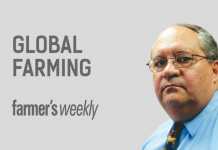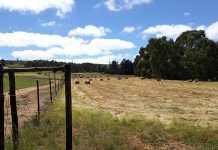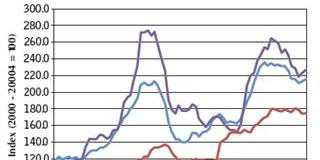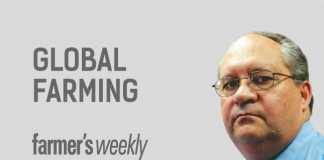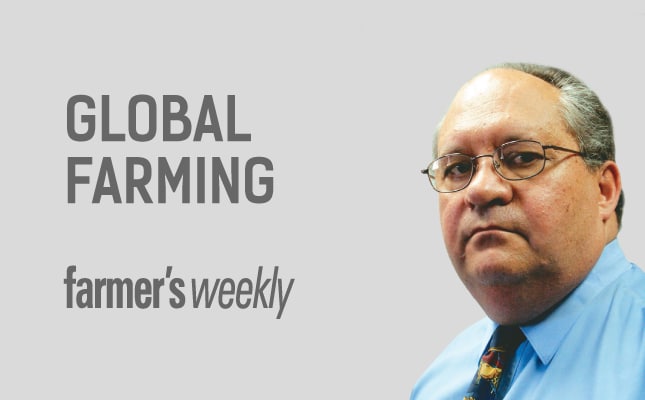
According to the Department of Agriculture, Forestry and Fisheries, the price of all farm requisites grew by 11% a year from 2011 to the end of 2014. The prices of agricultural products grew on average by 8,8% from 2005, with higher growth for field crops (12,5%) and lower growth for horticultural and livestock products.
READ:Food inflation increases by more than 10% in Kenya
To survive these deteriorating terms of trade, farmers must improve the ratio between production cost and product income. This is easier said than done, as farmers do not fully control the quantity of the products they produce. For instance, the current maize crop is estimated at 30% below the 2013/2014 crop. It is therefore crucial for farmers to exercise strict cost control, especially as the prices of specific farm requisites will increase in coming months.
Although a weaker rand benefits export- and import-sensitive industries, its negative effect on the price of farm requisites is probably more telling for most farmers. Prices of all imported farm requisites will increase as the rand weakens.
But this is not the only factor driving input prices. Government allowed one of the best utility companies in the world to deteriorate to barely operational status. Much higher electricity tariffs are definitely on the cards. Fuel prices have already increased in spite of the lower international oil price as government took the opportunity to increase fuel duties. Still higher fuel prices are also a certainty.
The cost of doing business in South Africa is another major factor. Deteriorating infrastructure in terms of roads, electricity and water supply, as well as the huge number of rules and regulations that farmers have to adhere to, all bite into profits.
Curbing costs
There are nonetheless several ways in which farmers can curb costs. Agricultural economists frequently recommend machinery pools, where large specialised machines are shared by a group of farmers. One obvious problem is that a farmer who enters into such an agreement must accept that there will be times when someone else may need the combine harvester at the same time he does. Clear rules are needed to ensure such a setup works well.
One group of dairy farmers in the Eastern Cape successfully combined their dairy operations to achieve better economies of scale. Fixed cost per unit can be reduced if the size of the farm business is increased. In future, more farmers will enter into such joint ventures to enable them to increase profitability.
Shop around
Many agribusinesses supply similar products. This is particularly true of animal feed, where all companies have to comply to the same minimum standards. Companies try to distinguish their products through advertising hype when the differences between products are often negligible.
There is a great deal of competition in agricultural markets, and farmers can often negotiate significant savings. This is particularly so where farmers form buying groups to buy in bulk. Another way of saving is to time one’s negotiations well before the specific input is needed.
Keep in mind that sales reps and companies are under constant pressure to increase turnover and are invariably open to negotiation.
Higher efficiency
It is imperative that expensive farm requisites are fully leveraged to optimise production. When cash flow is tight, a common error is to cut costs by using less feed, less fertiliser or reducing other inputs. In many cases, this results in decreased production and lower margins.
Cost cutting should never be a goal, but a way of increasing production efficiency. This means that animal rations should remain balanced, livestock should always be vaccinated, and all other production essentials should be maintained.
Ensuring proper stock control can also save money. For instance, dairy soaps and detergents are equally suited to washing clothes. Without proper control, a farmer may end up subsidising workers’ households with various products.
In closing
To sum up, farmers are facing a year of sharp cost increases and lower production in many areas. They will be forced to manage costs diligently to survive. This will require some effort, but it is certainly possible – through sharing and cooperation, negotiated buying, and careful stock control. What farmers should guard against is the temptation to cut costs by neglecting sound management; this may save some money in the short term but can prove highly problematic later.
Dr Koos Coetzee is an agricultural economist at the MPO. All opinions expressed are his own and do not reflect MPO policy.

